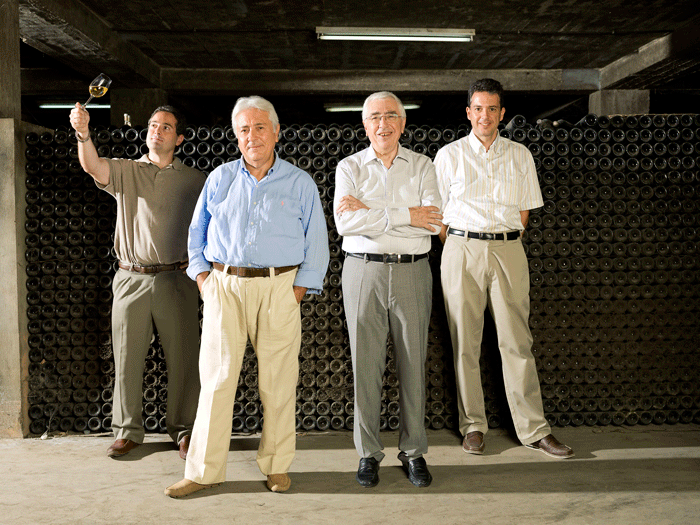The Bekaa of beyond
Author: Martin Hudson MW
In a world full of squeaky clean but anodyne wines made to formula, Château Musar stands out as an idiosyncratic but admirable individual. The estate was founded in Lebanon’s Western Bekaa Valley in 1930 by 20-year-old Gaston Hochar – his Gallic forebears having settled there during the crusades of the 12th Century.
Encouraged by the ready market provided by the French army stationed in Lebanon after the First World War, and inspired by the country’s historic wine-producing tradition – it has been home to the vine for 6,000 years – this Bordeaux-trained producer’s fledgling wines soon came to be lauded by none other than Ronald Barton, Anthony’s predecessor at Ch. Langoa-Barton and Ch. Léoville-Barton.
The business has remained in the family’s hands ever since, with Serge taking over from his father in 1959 after studying oenology in Bordeaux, and striving to perfect the exact blend for a red wine that would come to be hailed by Michael Broadbent MW as one of the most exciting finds of 1970. (Serge would also go on to be named Decanter’s first ever Man of the Year, in 1984.) This partly prompted Musar to establish a sales office in the UK – an outpost that is extant to this day – and which goes some way to explaining the affection with which the wine is held in this country.
The Musar red is unique in its blend of Bordelaise and Rhône varietals (Cabernet Sauvignon, Carignan and Cinsault to be precise), and in the long maceration and ageing process in oak, cement tanks and bottle that is more reminiscent of a traditional Rioja or Vega Sicilia than anything French. An excellent example of this singular wine, the undeniably luscious 2003 vintage, is in November’s Napoleon Red Case, and will drink from now until 2035.
The white meanwhile has been described as a dry Sauternes, an unlikely yet nonetheless apt description of a wine that counts as one of its components the local Merwah grape, almost certainly a clone of Sémillon. These are truly expressions of the unique terroir of the Bekaa, a valley blessed with plentiful sunshine and cool nights thanks to its 1,000-metre altitude, and beneficial position between the Lebanon and Anti-Lebanon mountain ranges.
This unique vineyard site has not been without its disadvantages, however, doubling as a battlefield during the 1975-1990 Civil War, with grapes being hand-picked under shellfire by a dedicated team of Bedouin on more than one occasion, but Serge’s brother Ronald managed to keep the delivery trucks running between the vineyards and the coastal winery 70 kilometres away every year during that difficult period bar 1976 and 1984.
The country’s trials continue, with political assassinations and an influx of Syrian refugees that has nearly doubled the population, but none of these challenges have deterred the Hochar family from their original aim to create and maintain a uniquely Lebanese wine that can stand alongside the iconic marques of the world, and grace any table – especially if something with a Mediterranean flavour is on the menu. Mish maoul, as the locals might say.
Read more about Wine Club, and receive £50 when you gift a Wine Club membership this Christmas.



